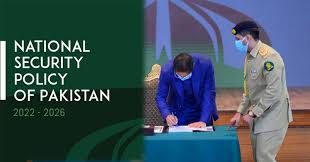
A Shift Toward Diplomatic Engagement
Pakistan’s newly unveiled National Security Policy (NSP) places a significant emphasis on regional stability, marking a shift from a solely security-focused approach to a more comprehensive strategy that prioritizes diplomatic engagement and economic cooperation. The policy outlines Pakistan’s commitment to fostering peace and stability in South Asia, particularly with its neighbors, in order to reduce tensions and create a more conducive environment for development. Pakistan has long faced security challenges related to its relationships with neighboring India and Afghanistan, and this policy reflects an understanding that long-term peace can only be achieved through dialogue and collaboration rather than conflict.
Strengthening Relations with Neighbors
Central to the NSP is Pakistan’s desire to strengthen its relations with neighboring countries, particularly India, Afghanistan, and Iran. The policy calls for sustained dialogue and confidence-building measures to resolve longstanding issues, including the Kashmir dispute with India, cross-border terrorism, and regional security concerns. By advocating for a peaceful resolution of these conflicts, Pakistan aims to reduce military tensions and foster economic integration in the region. The policy also acknowledges the importance of stable relations with Afghanistan, especially following the Taliban’s return to power, and aims to support peace, stability, and regional cooperation in the war-torn country.
Regional Cooperation for Economic Growth
The National Security Policy also recognizes that regional stability is closely tied to economic growth and prosperity. Pakistan aims to leverage regional cooperation to improve trade routes, infrastructure connectivity, and energy security, with the goal of enhancing economic ties across South Asia and beyond. The China-Pakistan Economic Corridor (CPEC) is seen as a vital element in this vision, as it aims to connect Pakistan with key regional and international markets. By focusing on regional economic integration, the NSP emphasizes that prosperity is a key pillar of national security, and that economic development will help mitigate internal and external security threats.
Tackling Non-Traditional Security Threats
In addition to traditional security concerns, the NSP addresses a wide range of non-traditional security threats, including climate change, cyber threats, and terrorism. The policy underscores the importance of regional cooperation in tackling these emerging challenges, which have the potential to destabilize the region. Pakistan aims to work with its neighbors and international partners to address issues such as water scarcity, environmental degradation, and the proliferation of extremism, which threaten both the environment and human security. These priorities reflect a more holistic approach to national security, one that recognizes the interconnection between political, economic, and environmental factors.
Long-Term Stability and Strategic Alliances
The NSP also highlights Pakistan’s commitment to strengthening its strategic alliances with global and regional powers, including China and the United States, while pursuing a balanced foreign policy that seeks peace and stability. Pakistan recognizes that long-term stability in South Asia requires collaboration not just with its neighbors but also with international powers that have a vested interest in the region’s security. The policy calls for enhanced cooperation on defense, counterterrorism, and intelligence sharing, which will be crucial in addressing regional instability and maintaining peace in the face of global challenges. By prioritizing diplomatic channels and regional partnerships, Pakistan aims to position itself as a stabilizing force in South Asia while securing its national interests.
Find out how to turn your PUBG skills into earnings with our tutorial

